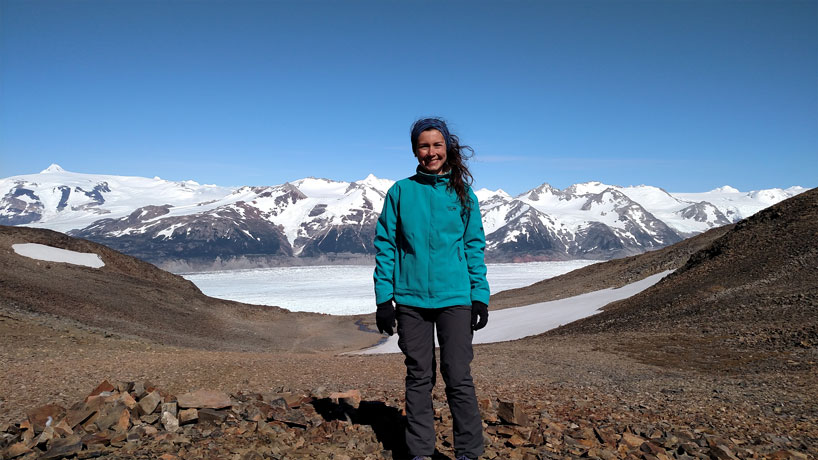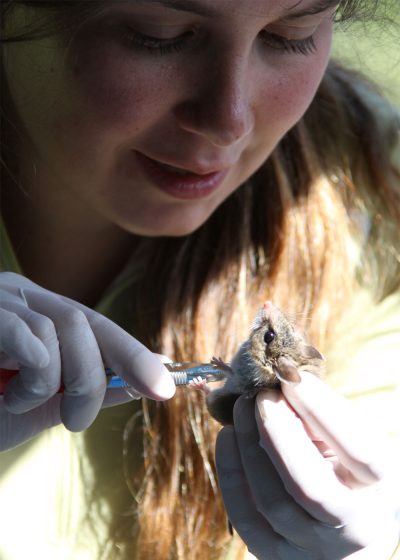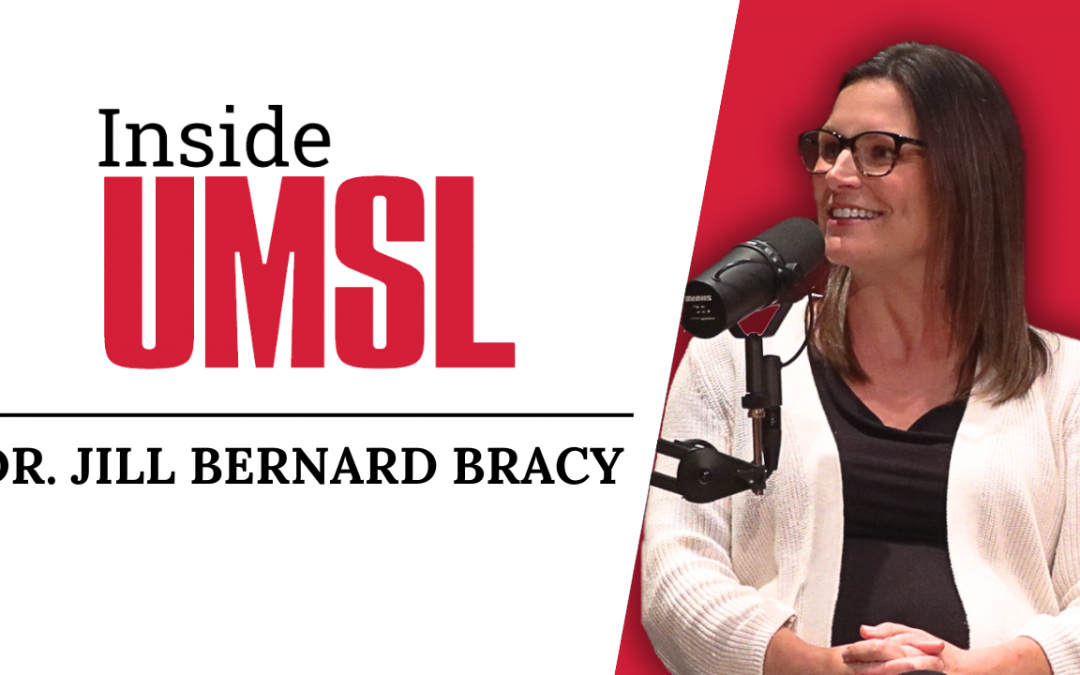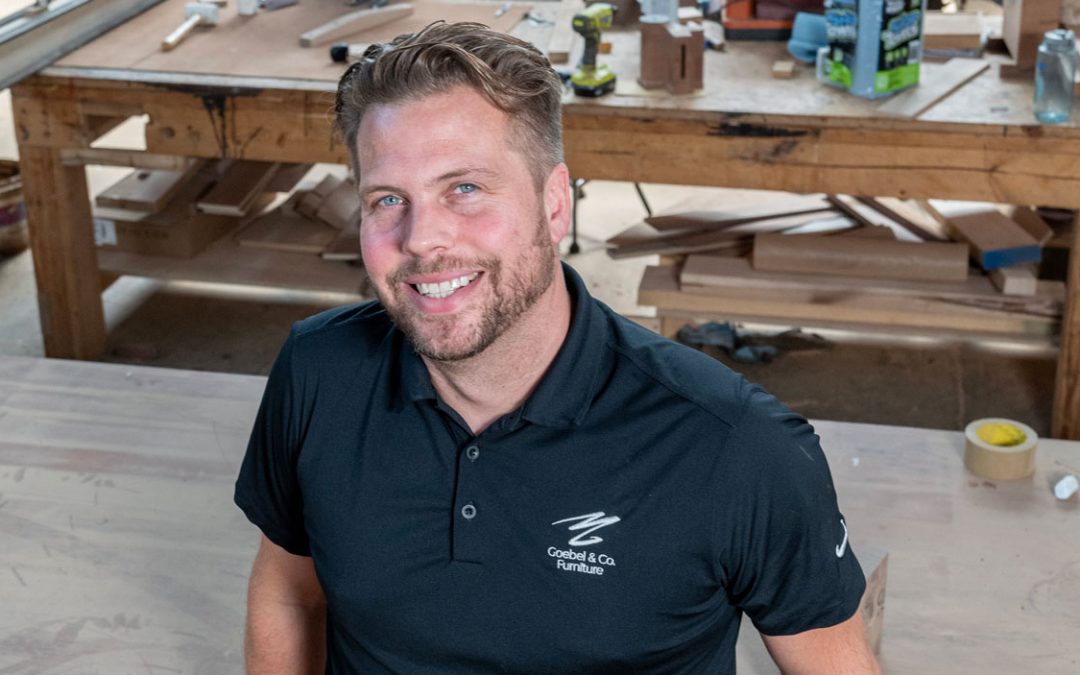
Dr. Leticia Gutiérrez Jiménez is headed around the world as a field veterinarian and disease ecologist after graduating from UMSL with her PhD in biology. Working for EcoHealth Alliance, her research aims to help protect wildlife and the public from disease outbreaks like Zika. (Photos courtesy of Leticia Gutiérrez Jiménez)
For seven months this year Dr. Leticia Gutiérrez Jiménez will travel to the Indian subcontinent, Southeast Asia, West Africa, Egypt and Jordan to take blood samples from bats, rodents and primates.
The former Fulbright Scholar and recent University of Missouri–St. Louis graduate will do so for her new position as a field veterinarian and disease ecologist at EcoHealth Alliance. Based in New York, EcoHealth Alliance is a global environmental health nonprofit organization dedicated to protecting wildlife and public health from the emergence of disease.
Gutiérrez Jiménez has been tasked with implementing field research under the PREDICT-2 project of the U.S. Agency for International Development’s Emerging Pandemic Threats program. She will study emerging diseases and wildlife trade, with an eye on reducing pandemic risk.

Gutiérrez Jiménez carefully collects a sample from a rodent for her doctoral research on the effect of land use change on infection patterns in the rodent population of the Greater Yellowstone Ecosystem. She now oversees humane blood sampling of wildlife worldwide for EcoHealth Alliance.
“The primary problems I will address are related to global disease surveillance, ensuring safe wildlife trapping, handling and humane sample collection,” she said.
Gutiérrez Jiménez is responsible for project development, data analysis, scientific report and manuscript writing – plus serving as a liaison between local government officials and U.S. government personnel.
“It’s fair to call it my ‘dream job,’” she said. “Indeed, working with wildlife and local communities will allow me to altogether improve their well-being and promote ecosystemic conservation.”
The work isn’t anything new for the recent graduate, who earned her PhD in biology from UMSL last month and holds a doctor of veterinary medicine and bachelor’s degree in veterinary and agricultural sciences from the University of Chile as well.
A native of Santiago, Chile, Gutiérrez Jiménez became a Fulbright Scholar in 2008. She chose UMSL as her next step academically for one reason – to study with Curators’ Professor of Biology Robert E. Ricklefs.
“I applied to several renowned universities,” she said. “I decided to accept UMSL’s offer because of the superb trajectory and cutting-edge research scope of my academic adviser.”
Gutiérrez Jiménez noted the prestige of working with Ricklefs, who is a member of the National Academy of Sciences.
While at UMSL, Gutiérrez Jiménez researched the role of mammalian biodiversity in maintaining overall ecosystem health in the Greater Yellowstone Ecosystem.
“The study explores the pathways by which human disturbance prevents or promotes the emergence of infectious diseases in wildlife and humans,” she said.
Gutiérrez Jiménez surveyed the GYE rodent community, finding mainly tick-borne pathogens and tracing the general patterns of host-pathogen association in the system. This took into account how the land was used – whether for settlements, horseback ranches, pastures or left to its natural, undisturbed state.
“The overarching goal was to tease apart the effect of land use change on infection patterns in the rodent assembly,” she said, “and to study the reservoir population density change between disturbed and undisturbed sites.”
What Gutiérrez Jiménez found is that human disturbance increased the overall disease risk, not because a particular long-term host species of a pathogen, termed “reservoir species,” became more abundant, but rather because the density of all hosts increased significantly in the disturbed systems.
“My dissertation directly tackles a paramount goal in public health: zoonotic disease prevention through a holistic approach – One Health – which intersects environment, animals and humans,” Gutiérrez Jiménez said.
The pilot research was partially funded by UMSL’s Whitney R. Harris World Ecology Center, a partnership among the university, the Missouri Botanical Garden and Saint Louis Zoo to support education and research ecology and biodiversity conservation through scholarships and public awareness projects. The funding allowed Gutiérrez Jiménez to generate competitive preliminary data that would earn her several additional research grants from other agencies as well as sponsor travel for conference presentations.
“Epidemiology is fundamental to understand the transmission of diseases and the risk factors that cause outbreaks,” she said. “Furthermore, when epidemiology meets disease ecology, it is possible to understand, from a global point of view, the intricate matrix of interactions among all the players involved in a particular disease, including the environment, wildlife, domestic animals and humans.”
For Gutiérrez Jiménez and the world, it’s serious and important work, especially considering the risk of outbreaks. Since 2009 – less than a decade to date – the world has witnessed outbreaks in three major viruses – H1N1, Ebola and Zika.















